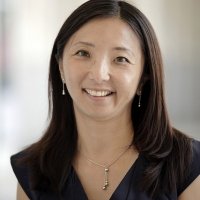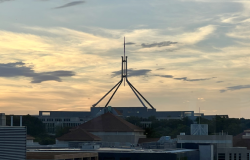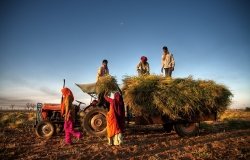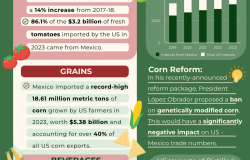IHOR SULYATYTSKYY / Shutterstock.com
WEBCAST: Asia’s Covid-19 Challenge: Bracing for the Impact on Economic Development
Overview
In its latest assessment of the economies of Asia, the Asian Development Bank projects growth in the region’s developing countries to slow down to 2.2 percent as a result of the Covid-19 outbreak and overall slowdown in the global economy. The decline in growth is broad-based, affecting the People's Republic of China and India, as well as the rest of developing Asia’s economies. Risks to the region's economies are extremely large due to the uncertain evolution and effects of the ongoing pandemic. Watch the event video for the latest findings of the ADB’s flagship Asian Development Outlook report as well as estimates and policy implications of the pandemic's economic impact on the world's most populous region.
Selected Quotes
Shihoko Goto
“The G20 has had only a limited response. Their idea of debt postponement, rather than forgiveness, for the poorest of countries has only a limited effect on the world economy, especially in the Asia- Pacific. The whole idea of capital flight from developing countries, as countries look to repatriate money back into their own countries, is also going to be a tremendous challenge as well.”
“[In] the latest Asian Development Outlook report…there is a lot of talk about investing in human capital [and] investing in education [but] this is going to be a challenge when there are so many immediate concerns. The fiscal policies are going to be strained in all of these countries.”
“Japan is offering about 2.2 billion dollars to encourage Japanese companies to move their supply chains out of China…There has been a lot of rethinking about global supply chains in general, in that the strengths of the supply chain, the just-in-time system, having low inventory, is actually not an effective way. There are limits to how that can actually move forward in the future.”
Yasuyuki Sawada
“Due to [the] global pandemic…GDP growth in developing Asia is projected to slow from 5.2 percent last year to 2.2 percent this year, three percentage points below our 2020 forecasts from September last year…[but] next year, 2021, we envision a strong bounce bank… However, this V-shape recovery is not necessarily assured. The decline could be steeper, and the recovery could be slower.”
“Although there are continuous threats to the [regional and global] outlook from a range of issues, from natural disasters to politics, the most pressing threat right now comes from the global pandemic. The forecast assumes containment this year and the restart to normal activities next year the, but the future evolution and effect of the outbreak [is] highly uncertain.”
“As of early April, we envision that resulting in a global loss of between 2.0 to 4.1 trillion U.S. dollars…or between 2.3 percent and 4.8 percent of global GDP losses. Most of [this] impact, between 65 percent and 78 percent, comes from countries outside of developing Asia with the U.S. and Europe accounting for more than half of the losses.”
“Containment is quite important to disrupt the trajectory of COVID-19 cases, but at the same time, people are worried about the fundamental trade-off between stringent containment policies and economic activity. But we can point out that smart strategies can be feasible to avoid this trade-off between containment and [the] economy. For example, Taipei…didn’t merely adopt stringent, draconian containment policies but at the same time economic activities at a fairly high level could be continued.”
“Without [the] right policies to support the poor people through income transfer, cash transfer, or other social protection programs, unfortunately the long-term trend of poverty reduction in the Asia-Pacific region seems to be reversed. And we will observe a ticking up of poverty, of the incidence of poverty, in the data.”
Scott Morris
“While the initial outbreak of this pandemic started within Asia, the risks to the region as a whole today increasingly are outside of the region, namely that other countries are not able to contain the pandemic. , As a result, there’s [an] ongoing risk of spread back into Asia. And then of course, the various kinds of economic shocks…that can be a function of how economies outside the region are performing, and again, recognizing the exposure of Asia, the integration of Asia into the global economy.”
“Already by early April, households in Bangladesh had experienced a 77 percent drop in incomes and almost all of those respondents indicated they were not seeing any support from the government…That’s one country and one case, but it points to the severity of risk when it comes to poor populations, particularly in the developing world…There’s a high risk of major [poverty improvement] reversals that could take a long time to correct.”
“We understand, those of us in the economics profession, this is primarily first and foremost a health crisis and has to be addressed as such before we can expect economic recovery. That holds for Asia much as it does for the rest of the world.”
“Asia as a whole is more dependent on remittances than other regions are. When you consider [that] the United States is a key market for Asian workers sending money back to countries like the Philippines, the fact that our economy essentially is on hold has a severe effect on the ability of these workers, particularly low-wage workers, to support their families back home.”
“The most recent actions and statements from the G20…demonstrate, while not a complete failure, a growing risk that the international community is not prepared to respond to what is presented as an unprecedented crisis globally, and that even more worrisome, that underlying tensions and conflict between countries may be inhibiting a forum like the G20 from taking the bold action [that] we need to see.”
“We know households need direct support [in this crisis]…more generally, social safety nets are weak. In countries that are defined by informal workforces, a lot of formal government programs simply do not reach a large share of households. And I think these institutions and donor governments as well are going to have to grapple with how to address that rapidly, in real time, as the crisis continues.”
About the Speakers
Yasuyuki Sawada is the chief economist of the Asian Development Bank, and leads the ADB’s Economic Research and Regional Cooperation Department (ERCD). He is also an economics professor at the University of Tokyo, Japan. Other academic posts include associate professor at the University of Tokyo; adjunct professor at the Korea University; research associate at the Australia-Japan Research Centre, Crawford School of Public Policy, Australian National University; and visiting researcher at the Asian Development Bank Institute. He has also been a researcher at the Japan International Cooperation Agency (JICA) Research Institute; the World Bank; the Economic Research Institute of ASEAN and East Asia (ERIA); the Bangladesh Institute of Development Studies (BIDS); and the Pakistan Institute of Development Economics (PIDE). He received his PhD in economics and MA in international development policy from Stanford University.
Scott Morris is a senior fellow at the Center for Global Development, director of the center’s US Development Policy program and co-director of the Sustainable Development Finance program. Previously, he served as deputy assistant secretary for development finance and debt at the US Treasury Department in the Obama administration. He was also formerly a vice president at the Committee for Economic Development. Morris serves on the international advisory panel of the Asian Infrastructure Investment Bank, the eminent group of independent advisors for the International Fund for Agricultural Development, and the executive committee of the Modernizing Foreign Assistance Network.
Shihoko Goto is the Deputy Director for geoeconomics and senior associate for Northeast Asia with the Wilson Center's Asia Program. She is a contributing editor to The Globalist magazine and a columnist for The Japan Times. Prior to joining the Wilson Center, she spent over a decade as a financial journalist for Dow Jones News Service and United Press International focusing on the international political economy. She was also previously a donor country relations officer at the World Bank. She received a BA in modern history from Trinity College, University of Oxford and an MA in international political theory from Waseda University.
Speakers
Hosted By

Indo-Pacific Program
The Indo-Pacific Program promotes policy debate and intellectual discussions on US interests in the Asia-Pacific as well as political, economic, security, and social issues relating to the world’s most populous and economically dynamic region. Read more

Hyundai Motor-Korea Foundation Center for Korean History and Public Policy
The Center for Korean History and Public Policy was established in 2015 with the generous support of the Hyundai Motor Company and the Korea Foundation to provide a coherent, long-term platform for improving historical understanding of Korea and informing the public policy debate on the Korean peninsula in the United States and beyond. Read more
Thank you for your interest in this event. Please send any feedback or questions to our Events staff.











